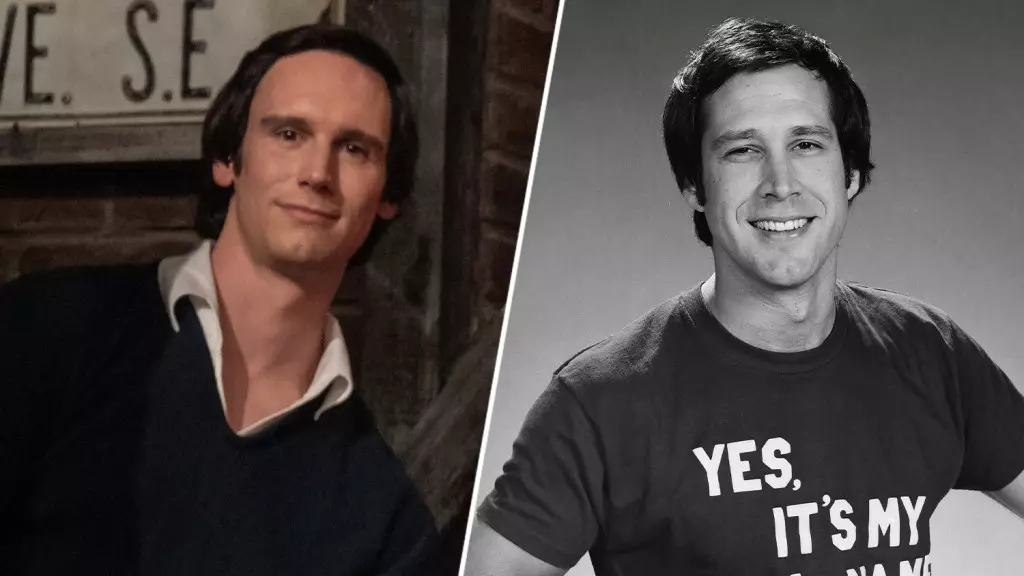Cory Michael Smith recently faced a monumental challenge in his acting career that many would consider both exhilarating and daunting. Portraying a figure as iconic as Chevy Chase is no small feat, especially for an artist who has admired Chase since childhood. In discussing this ambitious role in the film “Saturday Night,” which coincides with the 49th anniversary of “Saturday Night Live,” Smith revealed the complexities and emotional weight that accompanied this interpretation. For him, embodying Chevy Chase was not merely about emulation; it represented a deep-seated respect for a comedic titan.
Smith’s preparation process was nothing short of intense. Describing his approach as “very compulsive,” he dedicated an extensive two-month period to immerse himself in the world of Chase. By limiting his viewing experience exclusively to Chase’s performances, Smith aimed to deconstruct the comedian’s unique style, capturing the nuances of his dialogue delivery, facial expressions, and physicality. This dedicated method highlights a powerful commitment to authenticity in acting, reflecting not only Smith’s aspiration to honor Chase but also the inherent pressures actors face when stepping into the shoes of a beloved character. The psychological challenge Smith confronted—stripping away his own instinctual tendencies to avoid feeling insincere—illustrates the meticulous nature often required for historical portrayals.
The film “Saturday Night” depicts a pivotal moment in television history, capturing the chaotic energy that characterized the show’s inaugural episode. Originally titled “SNL 1975,” the narrative delves into the behind-the-scenes events leading up to that momentous broadcast on October 11, 1975. Beyond providing entertainment, such a portrayal serves to appreciate the spirit of an era coinciding with the emergence of contemporary comedy. The story reveals how a group of nascent comedians and creatives redefined the entertainment landscape, suggesting that the film aspires to pay tribute not just to the performers but to the cultural revolution they spearheaded.
Despite the weight of this role, Smith expressed a bittersweet element to his preparation: the inability to consult Chase directly. However, the actor took comfort in knowing that Chase had seen the film and reflected on the legacy that has influenced many, including Smith himself. This moment of connection, albeit one-sided, signifies a universal yearning artists experience—a desire for validation and understanding from the figures they admire. Smith acknowledged Chase’s impact on his own journey as a performer, encapsulating the blend of admiration and anxiety that often accompanies acting roles that are steeped in historical and personal significance.
Cory Michael Smith’s portrayal of Chevy Chase in “Saturday Night” is not just an artistic endeavor; it is an homage to a legacy of comedy that has shaped generations. His extensive preparation and profound respect for the role underline the serious dedication actors apply in their craft. In diving into Chase’s world, Smith navigates the complex interaction between reverence, performance, and historical storytelling, serving not only to entertain but to preserve the memory of an era that transformed the television landscape forever. The narratives brought to life in this film attempt to honor that transformation, ensuring that the legacy of comedic pioneers endures for future generations.
